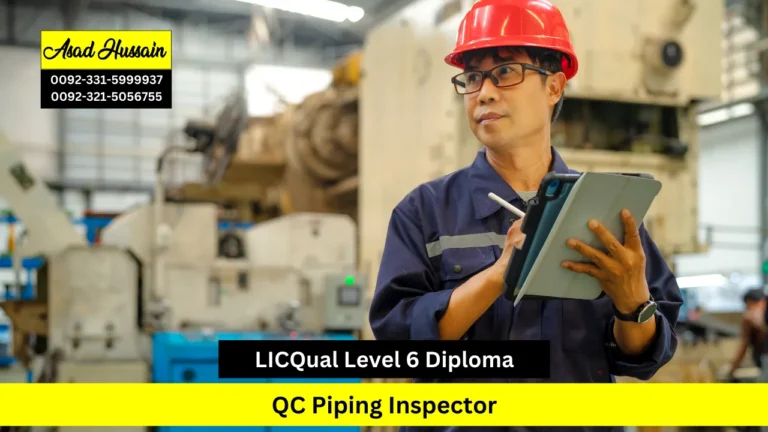Electrical technology is a fundamental aspect of modern life, powering homes, businesses, and essential infrastructure. The QualCert Level 1 Diploma in Electrical Technology is designed to provide learners with a foundational understanding of electrical principles, basic circuits, and essential safety practices, preparing them for entry-level roles or further studies in electrical and engineering fields.
QualCert Level 1 Diploma in Electrical Technology introduces learners to core concepts such as electrical circuits, wiring techniques, basic electrical machines, and energy principles. Emphasis is placed on practical skills, enabling learners to perform simple installations, identify faults, and apply basic troubleshooting methods in a safe and controlled environment. Learners will also gain knowledge of national and international safety standards, ensuring compliance and safe working practices.
By completing QualCert Level 1 Diploma in Electrical Technology, students will develop hands-on abilities in handling electrical tools, understanding circuit diagrams, and performing basic measurements, alongside foundational theoretical knowledge. The QualCert Level 1 Diploma in Electrical Technology is ideal for those seeking to begin a career in electrical technology, gain technical skills for workplace readiness, or build a stepping stone toward higher-level qualifications such as the Level 2 Diploma in Electrical Technology.
Graduates of the QualCert Level 1 Diploma in Electrical Technology will be equipped with the essential skills and confidence to work in entry-level electrical roles, apprenticeships, or supportive technical positions, providing a strong foundation for lifelong learning and career progression in electrical engineering and related sectors.
Program Highlights
Mandatory Units
- Introduction to Electrical Technology
- Electrical Circuit Theory
- Basic Electrical Measurements
- Electrical Safety and Regulations
- Electrical Components and Devices
- Practical Skills in Electrical Wiring
The Level 1 Diploma in Electrical Technology provides learners with foundational skills and knowledge to enter the field of electrical engineering or progress to higher-level technical qualifications. The following entry requirements ensure learners are prepared for success:
Age Requirements
- Applicants should be at least 16 years old.
- Mature learners with relevant interest in electrical technology may also be considered.
Educational Requirements
- Completion of secondary education (high school) or equivalent.
- Level 1 or introductory courses in electrical technology, electronics, or related technical subjects are helpful but not mandatory.
Professional Experience
- No prior professional experience is required.
- Entry-level learners, school leavers, or career chan
English Language Proficiency
- Basic English skills are required for understanding instructions, completing coursework, and communicating effectively.
- Reading, writing, and interpreting technical documentation is essential.
The QualCert Level 1 Diploma in Electrical Technology provides learners with foundational knowledge and practical skills to work safely and effectively in electrical environments. Upon completion of this course, learners will be able to understand core electrical concepts, apply basic technical skills, and perform practical tasks under supervision.
Introduction to Electrical Technology
- Understand the basic principles and terminology of electrical technology.
- Recognize different types of electrical systems and their applications.
- Identify career pathways and further educational opportunities in electrical technology.
- Appreciate the role of electricity in industrial, commercial, and residential settings.
Electrical Circuit Theory
- Understand concepts of voltage, current, resistance, and power.
- Analyze simple series and parallel circuits.
- Apply basic calculations to measure electrical parameters.
- Develop the ability to troubleshoot simple circuit issues safely.
Basic Electrical Measurements
- Use standard electrical measurement tools, such as multimeters and ammeters.
- Measure voltage, current, and resistance accurately.
- Interpret measurement results to identify circuit faults.
- Follow safe working procedures when taking electrical measurements.
Electrical Safety and Regulations
- Understand national and international electrical safety standards.
- Apply safe working practices in all electrical tasks.
- Identify potential hazards in electrical installations and equipment.
- Comply with regulatory requirements to ensure safety and reliability.
Electrical Components and Devices
- Identify and describe common electrical components, including resistors, capacitors, switches, and motors.
- Understand the function of basic devices in electrical systems.
- Demonstrate correct handling and installation of components.
- Apply knowledge to simple circuit assembly and testing.
Practical Skills in Electrical Wiring
- Perform basic wiring and installation tasks under supervision.
- Connect circuits following diagrams and instructions.
- Test and troubleshoot simple wiring projects.
- Apply safe and efficient techniques in practical electrical work.
Conclusion
Upon completing the QualCert Level 1 Diploma in Electrical Technology, learners will have acquired essential technical knowledge, hands-on skills, and safety awareness required for entry-level electrical roles. This qualification also lays a strong foundation for progression to the Level 2 Diploma in Electrical Technology and further advancement in technical and industrial careers.
The QualCert Level 1 Diploma in Electrical Technology is ideal for learners who want to build a strong foundation in electrical principles and practical skills. This course is designed for beginners, students, and professionals seeking to enter the field of electrical technology, gain workplace-ready skills, or progress to higher-level qualifications.
Educational Instructors and Trainers
- Gain foundational knowledge to teach or support entry-level electrical courses.
- Demonstrate basic electrical principles and hands-on techniques to students.
- Incorporate safety practices and standard regulations into learning sessions.
- Develop confidence in delivering practical demonstrations and guided exercises.
Environmental Advocates and Activists
- Understand energy-efficient practices and sustainable electrical systems.
- Assess environmental impacts of electrical installations and operations.
- Promote safe and responsible use of electricity in communities.
- Advocate for renewable energy and eco-friendly electrical solutions.
Research and Development Teams
- Apply foundational electrical skills to support technical research projects.
- Assist in testing, troubleshooting, and assembling basic electrical systems.
- Contribute to prototype development or small-scale automation projects.
- Support innovation initiatives in energy management and industrial applications.
Corporate Social Responsibility (CSR) Professionals
- Understand electrical system basics for workplace safety and compliance.
- Monitor energy usage and support efficiency initiatives within organizations.
- Ensure adherence to safety standards in electrical operations.
- Promote sustainable practices in corporate environments.
Students and Recent Graduates
- Acquire practical skills for entry-level roles in electrical technology.
- Build a foundation for further studies such as the Level 2 Diploma in Electrical Technology.
- Gain hands-on experience in circuits, wiring, and electrical components.
- Enhance employability in technical support or maintenance positions.
Career Changers
- Transition into electrical technology roles with foundational training.
- Develop practical skills for safe handling and installation of electrical systems.
- Explore new career pathways in technical, industrial, or maintenance roles.
- Gain confidence to progress toward higher-level qualifications.
Policy Makers and Regulators
- Understand basic electrical systems to inform policies and regulations.
- Assess compliance with safety, efficiency, and sustainability standards.
- Promote adoption of international electrical standards and best practices.
- Support initiatives to improve safety and efficiency in electrical work.
Conclusion
The QualCert Level 1 Diploma in Electrical Technology is suitable for a wide range of learners, from students and career changers to professionals and policy makers. Graduates will gain essential technical knowledge, practical skills, and safety awareness, providing a strong foundation for entry-level roles and progression to advanced electrical technology qualifications.







